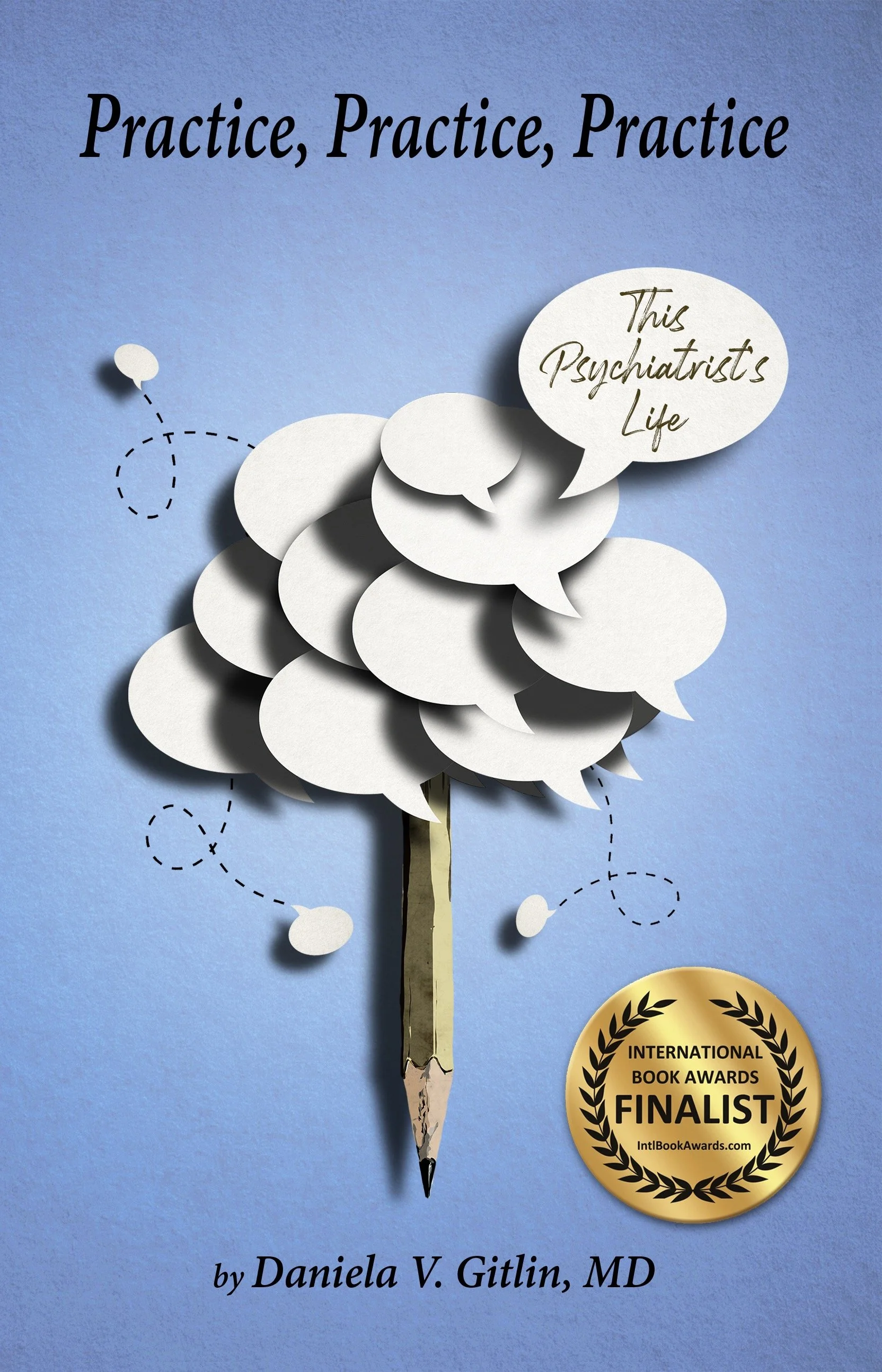Woe is Me, I Don’t Know What I’m Doing
Writing used to be my happy place. I used to be disciplined, reliable, and productive. Not anymore.
“How’s the book coming?” asks my friend Kristin, best-selling author and major procrastinator. She’s referring to the book W.W. Norton, major publisher of books essential to the practice of psychiatry and neurology, has advanced me actual money to write: 50,000 words, completed manuscript due October 2023.
“Terrible,” I say. “I oversleep, dawdle away the delegated time, then feel relieved when the time runs out. I don’t recognize myself!!!”
“Oh my god, you’ve become me.”
I laugh out loud. “Does that mean I’m a pro?!”
“I’ve been using this accountability app called www.caveday.org. You subscribe and log in to a zoom room at a committed time to write in the presence of others, no talking or sharing work. It’s totally ridiculous, but it’s working for me.”
“I’ll try it.”
‘Just so you know,” Kristin says, “what you’re going through is totally normal.”
Why does that not make me feel better?
“I haven’t been in touch with my publisher for months,” I groan. “I’m terrified to send her what I’ve drafted so far. What if she hates it?”
Kristin, bless her, takes this seriously. “Remember, she had to pitch the book idea to her higher ups to make you an offer. She’s invested and wants you to succeed.” Right. Right.
“I’ve got two chapters plus the intro sort of roughed out. I’m not happy with any of it. Should I send her that now? Or wait, till I’ve got more?”
“Just email and ask her,” she says. Duh. Okay.
“Who are you writing for?” Kristin asks. “I mean, someone specific, a friend or a colleague.” Susan, friend and colleague, immediately pops to mind.
The book is about a therapy phenomenon called the doorknob moment. That’s when, on their way out the door, patients disclose something so upsetting they break down. Should clinicians end the session or run over? Making a judgment call under time pressure on a case-by-case basis was a chronic source of professional stress until the solution came to me.
“Yes,” Susan had said when I first told her about it. “I get that it IS therapeutic to end on time even if the patient is sobbing her heart out. But,” she’d smiled ruefully, “I just can’t do it.”
“I’m writing this book for Susan,” I say to Kristin. “To help her check the natural impulse to run over in the face of patient distress.”
“Send her what you’ve written so far.”
Susan gets back to me within a day, and I write some more. I email my publisher. She replies within thirty—30— minutes!! “Nice to hear from you!” She’s fine with waiting.
To complete a rough draft of the book by June, what’s the math? 50,000 (words) minus the 11,000 I’ve already written equals 39,000 words divided by 13 (weeks till June) equals 3000 words per week. I can do that. I will do that.
When I feel like quitting, I reread this Martha Graham quote to remind me that’s not an option.
There is a vitality, a life force, a quickening that is translated through you into action, and because there is only one of you in all time, this expression is unique, and if you block it, it will never exist through any other medium, and be lost. The world will not have it. It is not your business to determine how good it is, nor how it compares with other expression. It is your business to keep it yours clearly and directly, to keep the channel open. (Martha Graham)
This piece was published in a slightly different form in the February 2023 newsletter of the National Society of Newspaper Columnists.
My clinical memoir spanning 25 years of practice launched three years ago on 2/29/2020. My, how time flies when you’re having a pandemic! If you’ve ever wondered what goes through a therapist’s mind as she’s listening to clients, here’s your chance to find out. Available on Amazon. Free on Kindle Unlimited.

